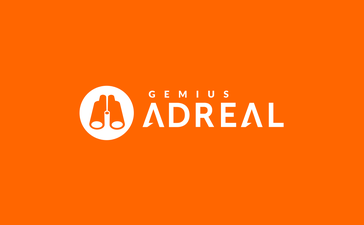
Cookie Magic
A website can be compared to the Hogwarts school building from the Harry Potter novels. It resembles a labyrinth-like castle, where some rooms may sometimes relocate (so that the only person in the entire company to comprehend the mechanism and its rationale is the IT guy). There are plenty secret passages and mysterious places. In Hogwarts, different people stroll the building, a website too is visited by a variety by users.
Publishers want to know their users
The owner of the castle (or website) would like to know where the guests mostly dwell (which web pages are most eagerly visited). This provides knowledge on which part needs special treatment, or how to rebuild the castle to make it more visitor-friendly (how to modify the website and links architecture), which gates the guests enter (or how the internet users get to the website) and which rooms (web pages) are the last ones to be visited. Moreover, the Hogwarts (website) owner would surely like to learn whether the persons entering are first time visitors or perhaps they frequent the library (the news), the sports ground (sports section), or whether the visitors are mostly boys or girls and what they find most interesting in different parts of the building (web pages). With this data at hand, the owner learns which part of Hogwarts (website) calls for investment or remodelling, and which are considered attractive.
Cookies and Marauder’s Map
At Hogwarts, such insight is made available through the Marauder’s Map. It allows one to trace the steps of all persons who enter the castle. Every visitor to the school is represented in the map with a tiny dot marked with the full name. In the digital realm, such map is feasible not through magic spells, but rather with special tags a computer labels internet users (or their browser, to be exact), so that they can be discerned from others. Such labels (small files) are downloaded on the internet user’s hard drive and can be read by the one who has placed them there. They are called cookie files (or simply cookies). These labels can also be saved in other locations on a device and then are referred to with different terminology.
Are cookies legal?
The Marauder’s Map – at first sight – was compiled by the authors against the Hogwarts regulations. This is not the right place to decide if such was the case indeed. What is important for an online publisher, however, is the fact that cookie files issues have finally been legally regulated and can be implemented in keeping with law. You can thus assert that in terms of transparency and compliance, analytical tools using cookies (e.g. such created by Gemius) are an entirely different story than the Marauder’s Map.
The table below shows the key differences.
|
Guests to Hogwarts don’t know when the map is being used, and the chart itself is activated with a spell: “I solemnly swear that I am up to no good”. |
The European law says that a computer user should be informed about the techniques employed to gather information about them – especially when some files are installed on their device, such as cookies. In some countries, an express consent of the user is necessary to implement cookies. Once the legal requirements are met, such activities are legal. |
|
The map shows the name and surname of the person (with some exceptions). |
Analytical tools (including those used by Gemius) show statistical data on website traffic. On no occasion does a website owner obtain any information on computer users who have downloaded a cookie file. Sometimes Gemius knows the socio-demographic data of computer users who downloaded the cookies; based on such information, the company can determine the type of user groups who visit a researched website. |
Rule one: inform
If you wish to use any analytical tools (this also pertains to the solutions offered by Gemius), then as the owner of an internet Hogwarts you should inform all your guests that they will receive cookie files, and specify the purpose of such activity. How to do that? Read all about it in the next part of “Cookie Magic”.


